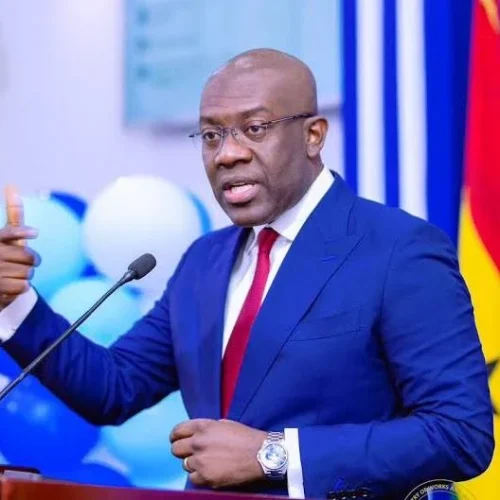
The Ranking Member on the Economy and Development Committee and Member of Parliament for Ofoase Ayirebi, Kojo Oppong Nkrumah, has outlined a comprehensive three-point strategy aimed at tackling Ghana’s growing energy sector debt, which continues to strain public finances and threaten energy sustainability.
Speaking at a press conference organized by the Minority in Parliament, Mr. Oppong Nkrumah called on the government to adopt bold structural reforms rather than relying on new taxes to resolve the crisis.
“If the government is truly committed to solving the energy sector’s financial problems, it must move beyond taxes and address the structural issues at the root of the debt crisis,” he said.
The first of the Minority’s proposals is for the government to expedite the renegotiation of existing power purchase agreements (PPAs) and other energy sector contracts that have contributed to the accumulation of liabilities. Mr. Oppong Nkrumah urged the administration to urgently complete renegotiations aimed at reducing unnecessary capacity payments.
“Many of these contracts, especially the take-or-pay agreements, are unsustainable and are at the core of our energy sector debt. The government must finalise renegotiations it claims to have started to reduce unnecessary capacity payments.” He stated
He also called for a strategic transition to renewable energy, arguing that reducing reliance on fossil fuels would help cut down the need to purchase fuel for thermal plants, one of the major drivers of the sector’s liabilities.
“We need to dominate our energy mix with renewable solutions, this shift will reduce our dependence on fossil fuels and the need to purchase fuel for thermal plants, which is a major driver of the current debt.” Kojo Oppong Nkrumah noted.
As a third measure, the Minority in Parliament proposed a more transparent approach to cost recovery through the regulatory system. They suggested that the government work closely with Independent Power Producers (IPPs) to integrate legitimate costs into Power Purchase Agreements (PPAs), which could then be reviewed and adjusted by the Public Utilities Regulatory Commission (PURC).
“We propose that government work with IPPs to move these costs into PPAs and then make a case to the PURC for appropriate adjustments to tariffs,” he explained.
“If justified, this provides a more transparent and regulated approach instead of lumping costs onto consumers through indirect taxes like the new fuel levy.”
According to the Minority, this move would improve planning and pricing across the power sector, protect consumers from sudden shocks, and make the system more predictable for investors and stakeholders.
Source: Elvisanokyenews.net
 ElvisAnokyenews Latest News Portal
ElvisAnokyenews Latest News Portal



